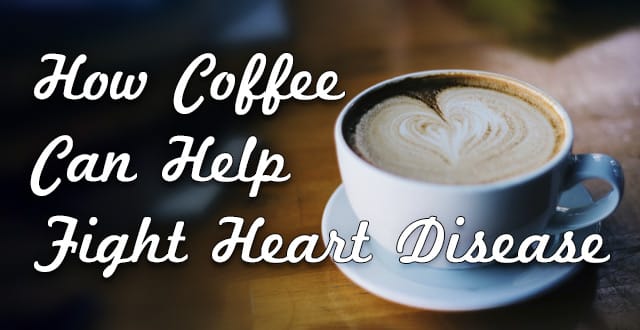As many of us know heart disease, specifically coronary heart disease, is the leading cause of death in both men and women in the United States. In fact, it accounts for approximately 1 out of 4 deaths each year. Heart attacks and heart failure are a large concern for most of the national and even international populations. Quite a bit of information regarding how to prevent or reduce heart disease abounds, leaving people confused about what the best and most viable options are available to help cut their risks. While breaking bad habits such as smoking, eating unhealthy food and not exercising aid in suppressing some level of risk, often times one wonders what more they can include to help combat this disease.
Well, here’s some good news for java lovers. Studies have shown that drinking coffee can be advantageous for decreasing heart disease. However, there’s more. Coffee has also been tied to the prevention of strokes, diabetes, liver cancer, and lowering cholesterol. Not a coffee drinker? Below are a few reasons why you may want to consider becoming one.
The Benefits of Coffee on Heart Health
- Heart disease is caused mainly by a buildup of calcium, or plaque, in the arteries. These clogged arteries lead to blood clots, heart attacks, and other types of heart failure.
- Coffee consumption has been shown to reduce buildup, which allows adequate blood flow to and from the heart.
- It aids in helping small blood vessels work more efficiently, resulting in less strain on the heart altogether.
- The combination of various compounds and oils in coffee breakdown calcium and other toxins and improve this necessary circulation in the cardiovascular system. This helps the heart to pump out enough blood and allows the vessels and arteries to bring in enough blood to keep the heart working at its proper maximum capacity.
The Difference Between Decaf and Caffeinated Coffee
Caffeine is not necessarily what causes the heart healthy benefits of coffee and it is likely that trying to get the same effect from other caffeinated beverages will not produce the same result. Coffee has natural antioxidants, whether regular or decaf, that are beneficial to heart health. These antioxidants work together with the potassium, fiber, and other minerals found in coffee to provide positive effects on the heart. Antioxidants can be found in other sources, such as fruits and vegetables, but coffee consumption offers the easiest and most effective way to receive them, due to our body’s ability to easily digest them through the coffee intake. Not to mention, one can get the largest amount of antioxidants from their diet by drinking coffee, much more than any other provided source. Getting these same benefits from decaf coffee is especially important for those who are trying to stay away from caffeine such as pregnant women, those with caffeine sensitivities, or individuals who are trying to control their blood pressure or blood sugar levels.
The Next Steps to Take
Ready to kick back a few cups of Joe? Not so fast. Coffee is the most effective against reducing heart disease when it is taken in moderation. While drinking up to six cups per day is considered acceptable, limiting the intake to three to five cups per day is recommended in order to ensure that enough benefits are gained without overdoing it. That is twenty-four to forty ounces a day, not your standard travel coffee mug size or takeout order from a coffee shop, but an actual measured cup. Too much-caffeinated coffee can cause jitters, high anxiety, and in some cases even insomnia, so it is best to avoid overconsumption. Also, while black coffee itself is helpful in reducing heart disease it is important to be mindful of what is put into it to for flavor, as sugar and cream can be high in fat and calories.
So now that you know what drinking coffee can do for you, why not try gradually adding a cup of coffee to your healthy diet and exercise routine if you haven’t done so already? Your heart will thank you for it. To learn more about the benefits you can reap from drinking coffee and how coffee can help reduce heart disease, visit The Nutrition Source.

